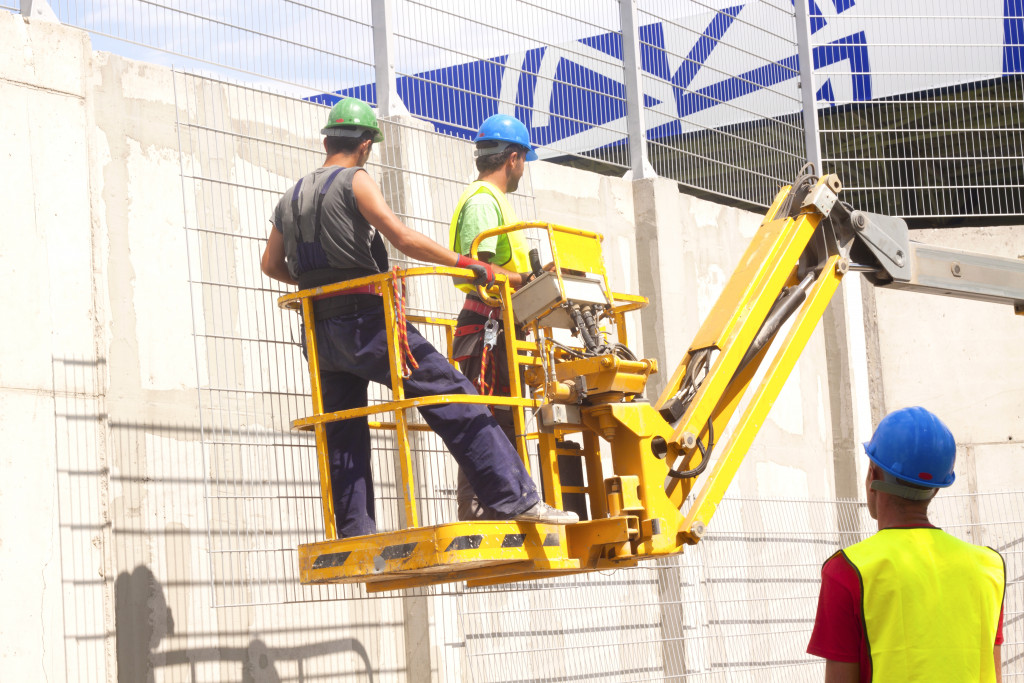- Develop a comprehensive business plan to define your company’s mission, vision, values and services.
- Obtain the necessary licenses and permits before operating legally.
- Build a reliable network of suppliers and subcontractors for your business.
- Invest in the right equipment for efficiency and productivity.
- Prioritize safety and obtain insurance coverage to protect from potential liabilities.
Starting a construction business can be rewarding and lucrative if done right. However, it requires careful planning, strategic decision-making, and a strong foundation to ensure success in a competitive industry. This guide will provide five essential tips for starting a construction business. From creating a solid business plan to investing in the right equipment, these tips will help you lay the groundwork for a thriving construction enterprise.
1. Develop a Comprehensive Business Plan
A well-structured business plan is the foundation of any successful construction business. Start by defining your company’s mission, vision, and values. Conduct market research to identify your target market, competition, and industry trends. Determine your business structure, such as whether you want to operate as a sole proprietorship, partnership, or limited liability company (LLC). Outline your services, pricing strategy, and marketing plans. Additionally, include financial projections, funding requirements, and a contingency plan. A comprehensive business plan will guide your decision-making and attract potential investors and lenders.
2. Obtain the Necessary Licenses and Permits
Before legally operating your construction business, you must obtain the necessary licenses and permits. Research the licensing requirements in your location and ensure compliance with all local, state, and federal regulations. Common licenses for construction businesses include general contractor licenses, specialty trade licenses, and permits for specific construction activities. Contact the appropriate licensing authorities and follow the application process diligently. Obtaining the required licenses and permits demonstrates your professionalism and commitment to operating within the legal framework.
3. Build a Reliable Network of Suppliers and Subcontractors

A strong network of reliable suppliers and subcontractors is crucial for the success of your construction business. Establish relationships with reputable suppliers who provide quality construction materials and equipment at competitive prices. Look for suppliers who offer timely delivery and excellent customer service. Additionally, develop partnerships with reliable subcontractors who specialize in various construction trades. Ensure they have the necessary licenses, insurance coverage, and a track record of delivering high-quality work on time and within budget. Building a reliable network will help you secure the resources needed for your construction projects and maintain a positive reputation in the industry.
4. Invest in the Right Equipment
Investing in the right equipment is essential for the efficiency and productivity of your construction business. Assess your specific needs based on the types of projects you plan to undertake. The right equipment enables you to complete projects efficiently and enhances your credibility as a professional construction company.
Here are some equipment to invest in:
4-Way Lifting Chain
Investing in a high-quality 4-way lifting chain is essential for safely and efficiently completing construction projects. It provides superior strength and stability to lift heavy items; the four-way design allows it to fit into most cranes, hoists, or forklifts. Choose a durable steel alloy with galvanized hooks strong enough to bear extreme weight while ensuring maximum safety. Additionally, look for chains with a certificate from an independent laboratory showing they meet industry standards for strength and durability.
Excavators

Excavators are powerful earthmoving machines for digging trenches, foundations, irrigation systems, etc. Investing in excavators can greatly reduce manual labor time on larger projects while providing accuracy and precision. Choose a model that meets your needs; larger ones are best for deep digging, while smaller versions are suitable for close work. Consider the terrain you’ll work in and whether your excavator should have rubber tires or tracks. Look for models with hydraulic breakers and advanced technology features such as GPS mapping to increase accuracy and efficiency.
Electric Cutters
Electric cutters are essential for slicing through the pavement, asphalt, concrete, bricks, stones, and other hard surfaces on any construction project. Investing in quality electric cutters will improve performance on projects of all sizes by providing better results with minimal effort. Consider purchasing a self-propelled cutter so it can easily maneuver around obstacles and debris. For better control and safety, look for features such as adjustable blade depth, dust collection systems to reduce airborne particles and anti-slip rubber wheels.
Wheel Loaders
Wheel loaders are versatile machines for loading materials onto trucks or other vehicles on construction sites. Investing in quality wheel loaders can significantly increase efficiency on large projects by reducing manual labor time and providing accuracy. Consider purchasing a heavy-duty loader with an ergonomic design that is easy to use and reduces fatigue during long shifts. Look for models with durable skid steer tires, hydraulic quick couplers for attachment changes with ease, and advanced features such as joystick controls to improve operator comfort and productivity.
5. Prioritize Safety and Insurance
Safety should be a top priority in the construction industry. Implement robust safety policies and procedures to protect your employees, clients, and the public. Conduct regular safety training and provide all workers with personal protective equipment (PPE). Also, obtain insurance coverage to protect your business from potential liabilities. Common insurance policies for construction businesses include general liability insurance, workers’ compensation insurance, and builder’s risk insurance. Consult with an insurance professional who specializes in the construction industry to ensure you have adequate coverage based on your specific needs and risks.
Final Thoughts
Starting a construction business requires careful planning, attention to detail, and strategic decision-making. Develop a comprehensive business plan, obtain the necessary licenses and permits, build a reliable network of suppliers and subcontractors, invest in the right equipment, and prioritize safety and insurance. By following these tips and adapting to the evolving needs of the industry, you can establish a successful construction business that delivers high-quality projects and builds a strong reputation in the market.

